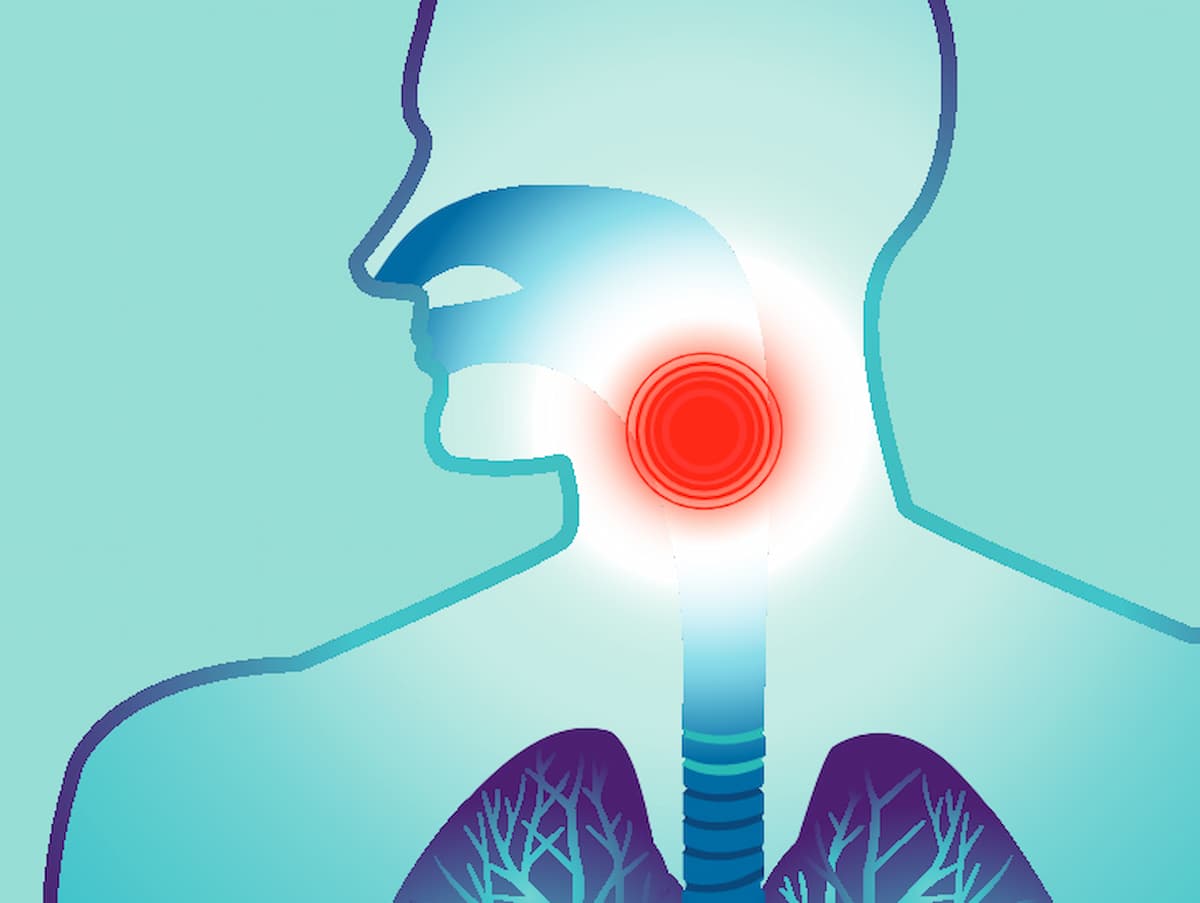As the practice of radiation therapy evolves in HPV-associated OPSCC, updated evidence-based ASTRO guidelines may help inform clinical practices.
The American Society for Radiation Oncology (ASTRO) updated its guidelines for definitive and postoperative radiation therapy in patients with HPV-associated oropharyngeal squamous cell carcinoma (OPSCC), according to findings published in Practical Radiation Oncology.1
Concurrent cisplatin remains the evidence-based recommendation for patients receiving definitive radiotherapy for pT3-4 disease and/or 1 node greater than 3 cm, or multiple nodes. Additionally, concurrent cetuximab (Erbitux), carboplatin/5-fluorouracil, or taxane-containing systemic therapy is conditionally recommended for patients who are not eligible for cisplatin. Similarly, concurrent cisplatin is strongly recommended with postoperative radiation for positive surgical margins (PSM) or extranodal extension (ENE).
Additionally, postoperative radiation by itself is recommended for patients with pT3-4 disease and more than 2 nodes or a single node greater than 3 cm. Observation is recommended conditionally for pT1-2 disease and a single node fewer than or equal to 3 cm in patients without additional risk factors.
7000 centigray (cGy) in 33 to 35 fractions is strongly recommended for patients treated with definitive radiotherapy plus concurrent systemic therapy, and 5600 to 6000 cGy is recommended for those receiving postoperative radiation without PSM or ENE. Intensity modulated radiation over 3D techniques with reduction in dose to critical organs at risk is strongly recommended for patients receiving radiotherapy.
Furthermore, 3 months following definitive radiotherapy plus chemoradiation, PET-CT reassessment as well as neck dissection for convincing evidence of residual disease are strongly recommended.
“HPV-associated OPSCC continues to increase worldwide, with approximately 21,000 new cases in 2020 in the Unites States alone, reflecting an age-adjusted rate of 5.0 per 100,000 people. It is the most common HPV-associated cancer among male [patients], and second only to cervical cancer in women,” wrote the authors of the guidelines.1 “The role and practice of [radiotherapy] continues to evolve for HPV-associated OPSCC, and these guidelines inform best clinical practice based on the available evidence.”
An ASTRO-led, multidisciplinary task force comprised of radiation and medical oncologists; head and neck surgeons; a medical physicist; a patient representative; and an information specialist was assembled to answer 5 key questions regarding radiotherapy use for management of HPV-associated OPSCC.
The 5 key questions pertained to the following areas:
- The use of systemic therapy for patients treated with definitive radiotherapy.
- Indications for adjuvant radiotherapy and chemoradiation for patients treated with primary surgery.
- Dose-fractionation regimens and treatment volumes with definitive and postoperative radiotherapy and chemoradiation.
- Preferred treatment modalities and normal tissue considerations for definitive and postoperative radiotherapy.
- Initial post-treatment restaging and neck management.
Recommendations were based on a systemic literature review and created with a system for grading evidence quality and recommendation strength, as well as a predefined consensus-building methodology. These guidelines were established after recognition of HPV-positive OPSCC as a clinically distinct disease from non-HPV OPSCC following the publication of the previous ASTRO oropharyngeal cancer guideline in 2017.2 At the time of the previous guideline publication, the evidence base primarily included prospective trials that investigators initiated before HPV-positive OPSCC was considered clinically distinct from non-HPV disease.
The guideline was reviewed by 14 official peer reviewers, with a modified version available on the ASTRO website between October 2023 and November 2023. The final guideline was then approved by the ASTRO Board of Directors.
The ASTRO guideline subcommittee in conjunction with the guideline chairs developed key questions, which were reviewed by the task force. A systematic search of human participant studies from the Ovid MEDLINE database using the PICOTS framework was conducted for English-language publications between January 2000 and May 24, 2023.
Randomized control trials, individual patient data meta-analyses, retrospective studies, and dosimetric or contouring studies were allowable publication types included in the analysis. Universal exclusion criteria encompassed preclinical and non-human studies; abstract only publications; review articles, comments, or editorials; and studies assessing treatment of recurrent disease or secondary primary disease.
Trial size requirements included 50 or more adults with a diagnosis of HPV-positive OPSCC for prospective studies and 100 or more for retrospective studies. Additionally, expert opinion was relied upon to support recommendation where limited data were available. A total of 186 task force–assessed studies were included in the final list.
References
- Margalit DN, Anker CJ, Aristophanous M, et al. Radiation therapy for HPV-positive oropharyngeal squamous cell carcinoma: an ASTRO clinical practice guideline. Pract Radiat Oncol. 2024. doi: 10.1016/j.prro.2024.05.007
- Sher DJ, Adelstein DJ, Bajaj GK, et al. Radiation therapy for oropharyngeal squamous cell carcinoma: executive summary of an ASTRO evidence-based clinical practice guideline. Pract Radiat Oncol. 2017;7(4):246-253. doi:10.1016/j.prro.2017.02.002

